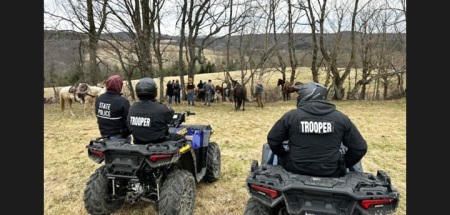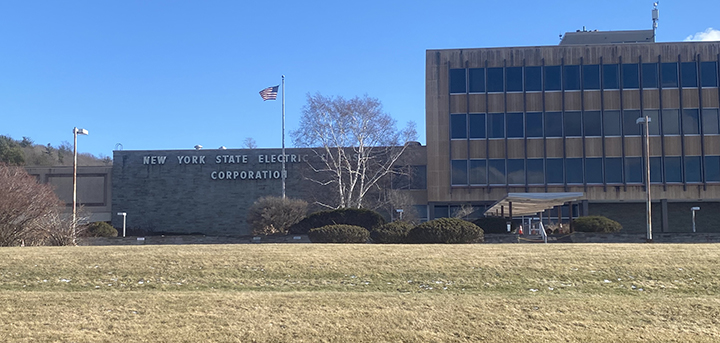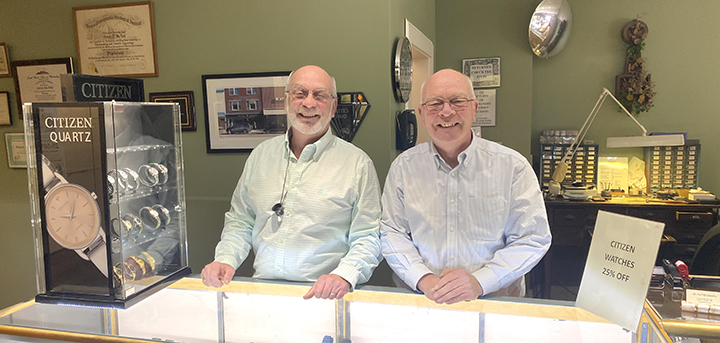$20,000 Donation Allows SPCA To Reopen Safe Haven Fund
Published:
January 11th, 2024
By:
Sarah Genter
 Lady Bird is a nearly two-year-old mixed breed available for adoption at the Chenango SPCA. Thanks to an anonymous donation, the shelter has reopened the Safe Haven Fund for Animals, which makes adoptions free while funds last. (Photo from the Chenango SPCA Facebook page)
Lady Bird is a nearly two-year-old mixed breed available for adoption at the Chenango SPCA. Thanks to an anonymous donation, the shelter has reopened the Safe Haven Fund for Animals, which makes adoptions free while funds last. (Photo from the Chenango SPCA Facebook page)
CHENANGO COUNTY — The Chenango SPCA recently received an anonymous donation of $20,000, which has allowed them to reopen the Safe Haven Fund for Animals, which covers adoption fees to make them free for the community while funds last.
SPCA Executive Director Patrick McLaughlin said the shelter has had this fund available in the past thanks to the same donor, who was inspired by their recent high adoption rates to donate to the program again.
“My understanding, because this is before my time, a couple of years ago she came in and wanted to do exactly what she’s doing now and fund adoptions so the community basically doesn’t have to pay. And that worked for a little while, the funds eventually were exhausted from that initial set of donations,” McLaughlin explained.
“She was very encouraged by our high adoption numbers in October; we hit 100 adoptions in October which is the highest ever for us, at least since we’ve been keeping records,” he continued. “So she was thrilled with that and contacted me about reinitiating the Safe Haven Fund, so we could basically make it possible for people to come and, as long as they’re approved, money doesn’t have to stand in the way of their adoption.”
The SPCA is currently at relatively low capacity, with 40 cats and 11 dogs in their care as of Monday. While low numbers are fairly common during the winter, McLaughlin said they’re expecting an uptick in just a few months and are hoping to keep capacity down to prevent straining their resources.
“One thing that can put a big strain on our resources is having a lot of animals here at the same time. So the faster we can adopt them out, we can serve the same number, but if the number here on a given day is lower, that makes things a lot easier,” he said.
Free adoptions are available while the funds last. McLaughlin said they expect it to last a few months, but it will ultimately depend on how quickly people come in to adopt.
He also said the success, and potential reinstatement of the program in the future, will depend on whether adoption rates increase or not.
“I think a metric that we’re using to assess how effective the program is is to see if the adoption rate increases. If the adoption rate increases then we say, yes, that was successful, and that helps our chances of getting another donation for the program in the future,” said McLaughlin. “If adoptions stay at the same rate, then we’ll say, for whatever reason that might not be working and it might not be renewed.”
Another positive change to adoptions at the Chenango SPCA is the updated and simplified adoption application. McLaughlin said the previous application asked for a lot of background information and references, which he said ultimately didn’t have much bearing on their decision to approve or deny an application.
Now, the updated application is shorter and faster, and McLaughlin said they rely more on in-person conversations with potential adopters.
“Instead of asking them to fill out a long form, have them come in, fill out a short form, and engage in a conversation with them, get to know them, and that ultimately helps us match the animals better anyway because the better we know the adopter, the better we can pair them with an animal,” he said.
“I’ve definitely had people tell me that they were dissuaded from adopting at all by the previous application, and so that's something that we really would like to avoid,” he added. “We want people to be eager to adopt and to make that process as simple and fast as we can, while also obviously ensuring that our animals go to safe and happy homes.”
For more information on the Chenango SPCA and their adoptable animals, visit ChenangoSPCA.org or the Chenango SPCA Facebook page.
Author: Sarah Genter - More From This Author
Comments






